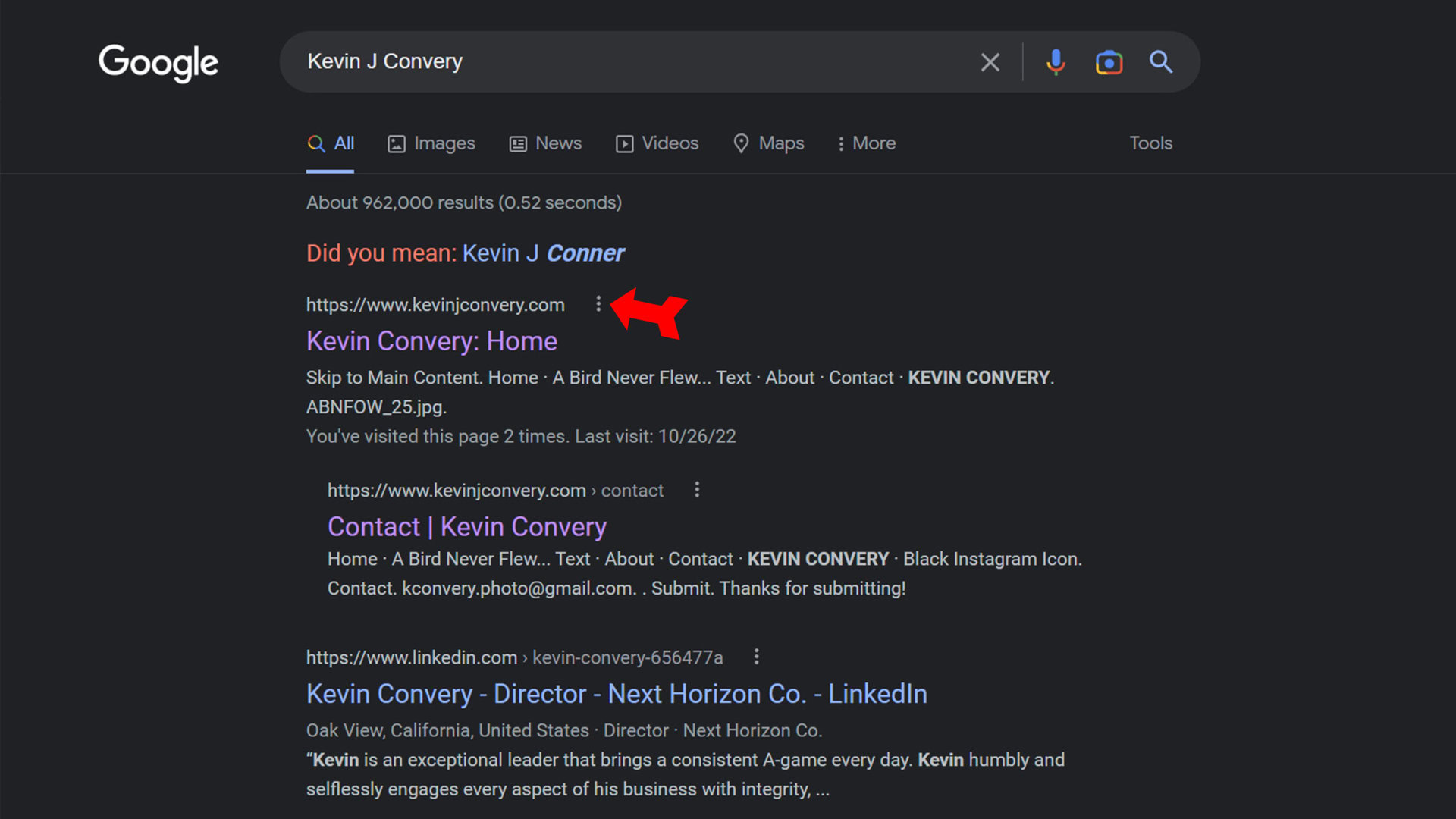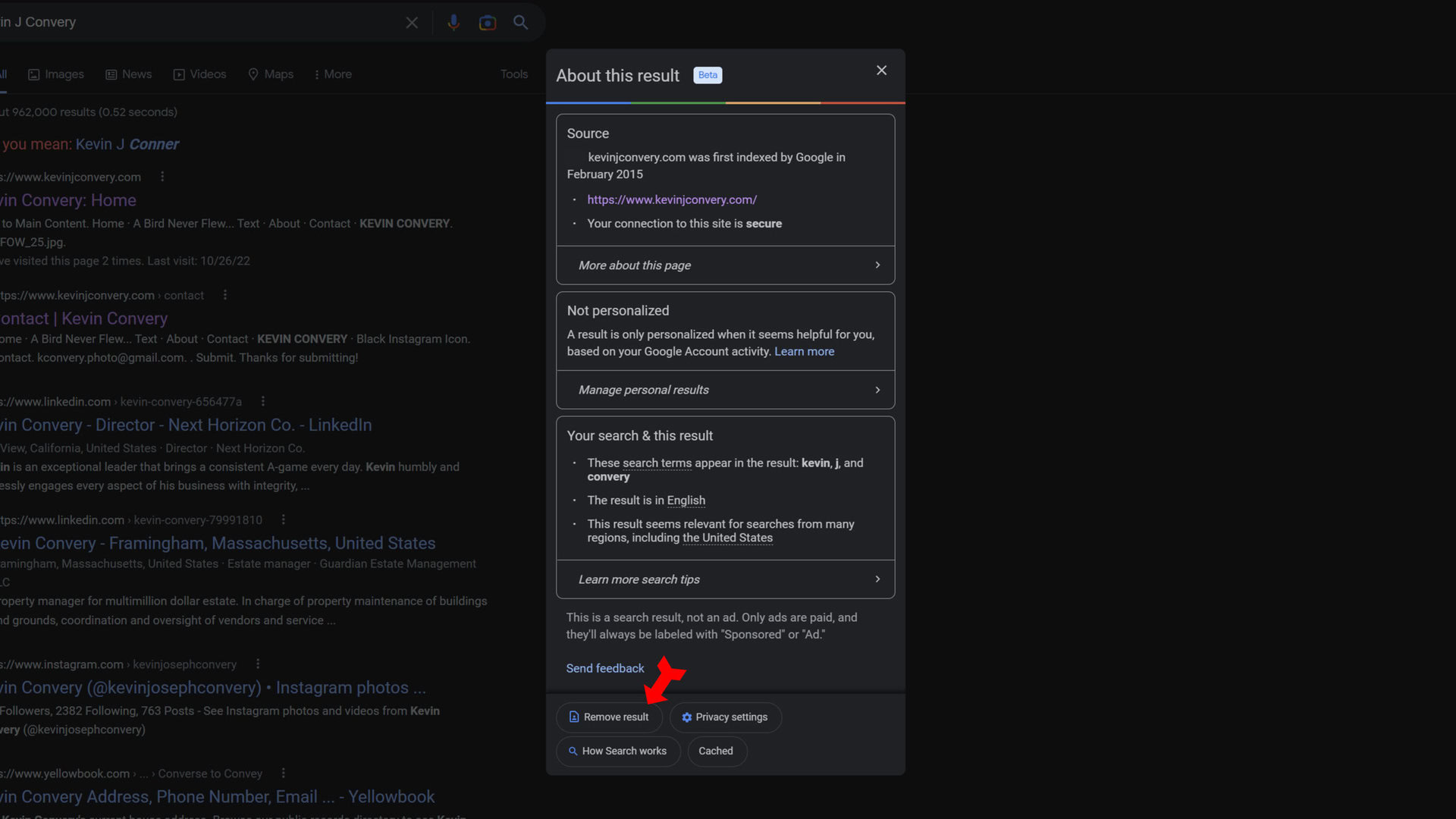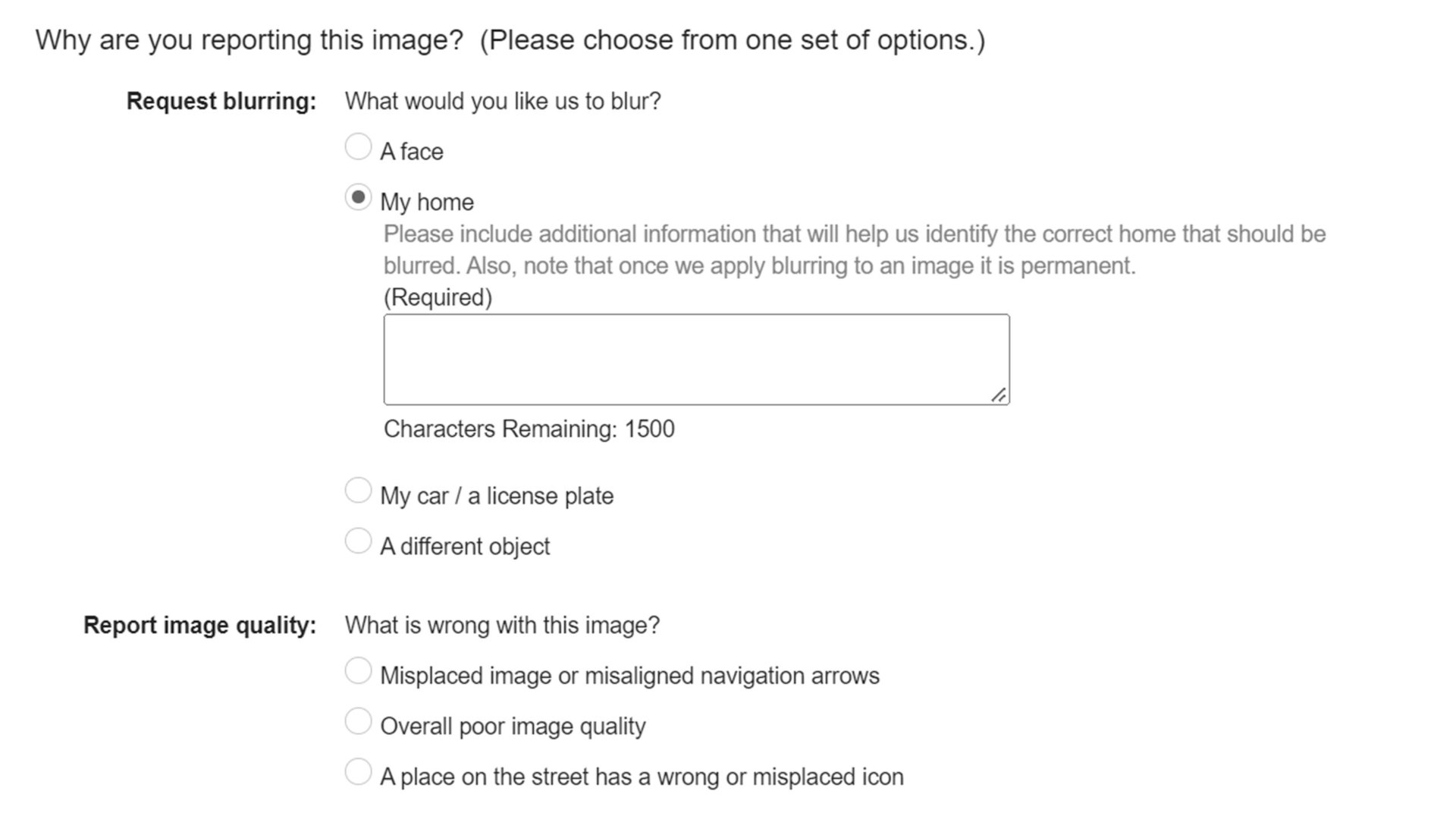Affiliate links on Android Authority may earn us a commission. Learn more.
How to remove personal information from Google search
Published onMarch 3, 2023
Unless you’re Chuck Norris, googling yourself is rarely a pleasant experience. But finding information that is confidential, intimately personal, or personally identifying on a Google search results page is truly horrifying. Besides the social media accounts that you may have left on Public settings or the shopping records that were leaked when a retailer got hacked (or you did), there are even more nefarious motivations and methods that could land your data — from your home address to your home videos — on the most popular search engine on Earth.
In such an online environment, any step toward accountability is something we should applaud. Google’s new method for quickly and easily removing inappropriate information about you from their search results is just such a step. Although Google cannot remove content from websites it does not control, it accounts for over 80% of all web searches, so having Google remove the offending page from their results greatly lowers the page’s search visibility. The procedure for requesting the removal of information from Google’s search engine is straightforward. And you should probably know it before you need to, so you can act fast when required.
QUICK ANSWER
Click the three-dot icon next to the result to remove personal information from Google search results. The About this result window will pop up over the results page. Click on the Remove result button to initiate the removal process. Google will ask you questions about the content to be removed. After you submit your request, Google will review it and respond with their decision.
JUMP TO KEY SECTIONS
How to remove personal information from Google search
Should you discover your name, address, email, or other personal information in a Google search that you want to be removed, click on the three-dot icon next to the search result.

This will bring up the About this result window. At the bottom of this window, you will see the Remove result button.

When you click on it, you will be given a list of reasons for removing the result. Personal information, illegal activity, and incorrect information are all legitimate reasons to object to a search result. Choose your reason, and Google will ask additional questions. Then you submit your report and await Google’s decision by email.
What other types of information can I request to be removed from Google search?
The new result removal tool goes well beyond your contact information. For example, someone could use a photo of your house to find your home address. Here is a list of information that Google will consider for removal:
- Explicit images of you (real or fake).
- Any pictures of you if you are a minor (a parent can also request this).
- Bank account or credit card numbers, passwords to your online accounts, or images of your signature.
- Any doxing content (contact information, home photos, a map of your route to and from work, etc.).
- Phone numbers (personal phone numbers or contact information).
- Irrelevant pornographic search results under your name (a rare occurrence, but Google will consider it).
How to manually remove other types of personal information from Google search
As we’ve noted, Google cannot make website owners take down information. However, you can contact the web admin of the site in question and tell them you don’t want your information published online. If they agree to remove the information, it will disappear from Google’s search results within a month. If it doesn’t disappear and you know the content has been taken down, you can request that Google remove it because it is no longer accurate (the link for this request is here).
You can also stop further leaks of your information by ensuring all your social media accounts are set to the highest level of privacy each site allows. Still, another way to stop the problem before it starts is to request that Google put a privacy blur over any image of you, your house, or your vehicle. You can do this in Maps from Street View by clicking on the three-dot icon in the upper left and clicking Report a problem. A form will come up that lets you request that the identifying image be permanently blurred.

What data will you need to provide?
Once you click on Remove result, Google will ask you questions. They will want to know the following:
- Whether you have contacted the website in question (it is not necessary).
- The type of information you wish to be removed.
- Whether the information is part of an effort at doxing you.
- Whether you have contacted the website in question.
- Your full name, the country you live in, and your email address.
- The URL of the offending page.
- The search terms that brought up the results that contain your information.
- A screenshot of the page in question showing your data.
- Any other information (like a maiden name or a nickname) that would help Google process your request.
Once you have provided this information, you can submit your request and get the ball rolling. So…what then?
What happens after you submit a removal request?
Because the removal feature is so new, an average response time hasn’t presented itself. But given Google’s rate of indexing the Internet, you can expect it to take up to 30 days for your information to disappear from Google searches. Keep in mind Google will not approve all requests. Google will likely not remove links to official government websites or newsworthy information.
Google may take three courses of action in response to your request. They include:
- Removing the search result from all Google searches.
- Removing the search result only from Google searches of your name.
- Not removing the search result.
Google promises that if they reject your request, the rejection notice will be brief and easy to understand. They will also allow multiple submissions of the same URL.
FAQs
From a variety of sources, both legal and illegal. Some bots can troll social media sites for any information or accounts marked Public. If hackers release data on customer accounts at a store where you shop (online or brick-and-mortar), your report will soon be available on the dark web. A website you visit may sell your data as part of its business model, and the chain of custody might not be air-tight. However it got there, finding personal information online is a sign that there might be something deficient in your online security approach. Don’t just have Google remove it; review your passwords and procedures to see where you can improve your own security.
The result in question will still be part of Google’s indexing of the Internet. It will be hidden from all searches or from searches of your name if Google approves your request.
Just as Google cannot remove content from websites it doesn’t own, neither can it affect the search results of other search engines. So yes, your information will still be available on different search engines after Google grants your request. However, Google handles over 80% of the world’s web searches, so the number of times it comes up in people’s searches will decrease substantially.